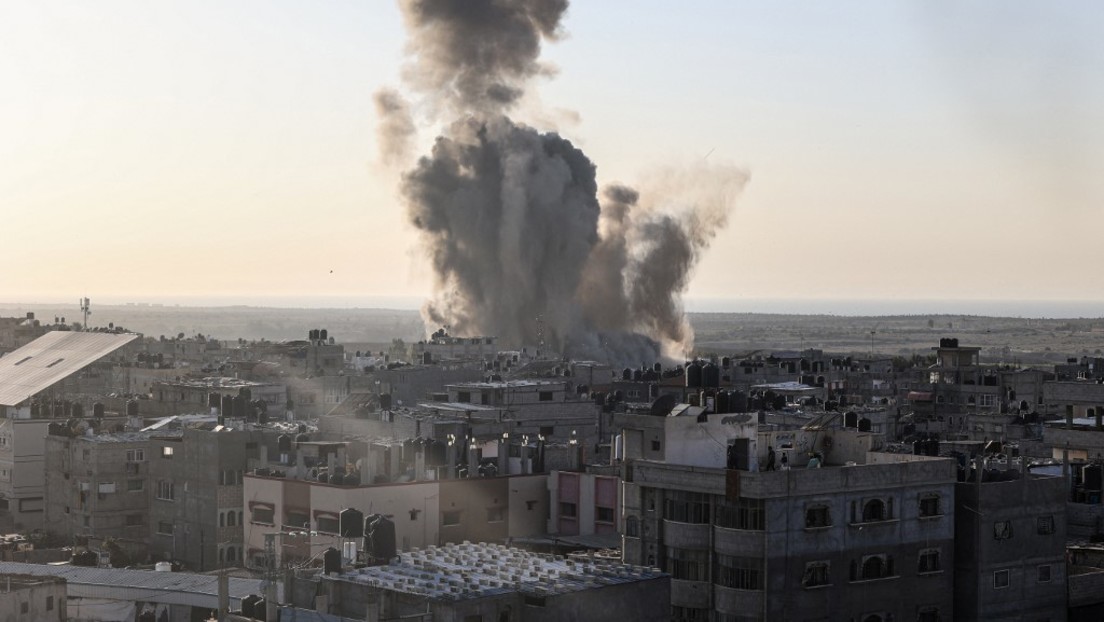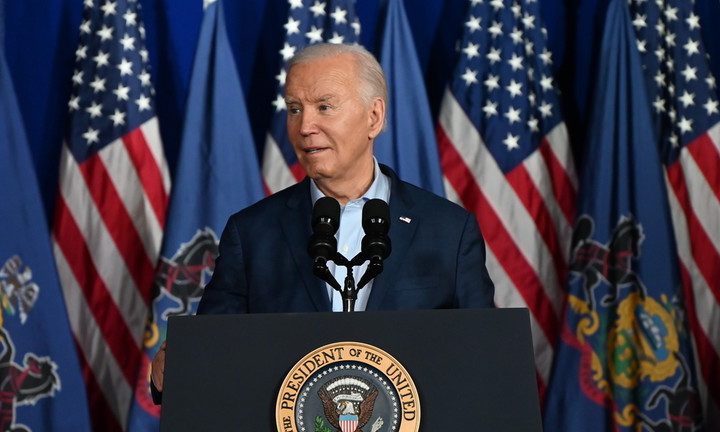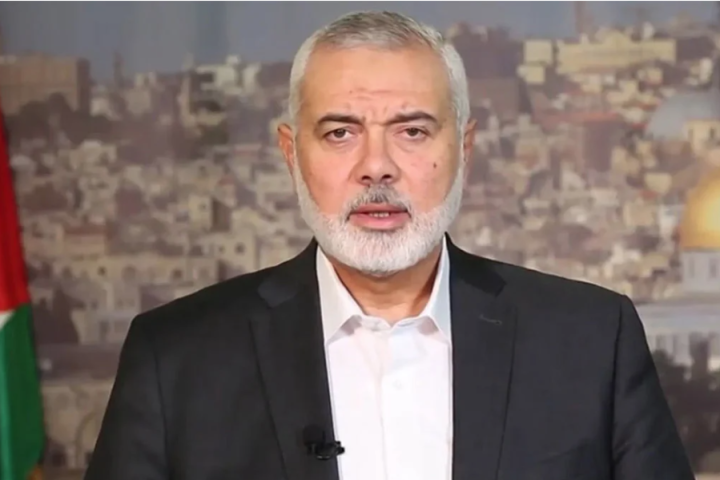After the initial shock of the Hamas attack on November 7, the world started talking about “the day after” Israeli operation. The general consensus was that Hamas should be at least militarily dismantled and a Palestinian state established. There were many ideas for a transitional period, ranging from guarantees to an Arab peacekeeping force controlling Gaza.
After all, this would remove an organization that opposes peace, that does not want the partition of the historic Palestinian territories, and the Israeli right would unwillingly end the political division of Palestine.
It would then be possible to create a second state based in some way on the 1967 borders, with a small piece of East Jerusalem as its capital.
- Political ecology and NATO in the Caspian basin
- Putin’s Vision for the Middle East: Security, Economy and Strategic Cooperation-1
This would bring peace and stability to the region and end the 100-odd year old problem that has provided legitimacy to many radical organizations. The money spent on the reconstruction of the destroyed and burned Gaza would not be wasted by the next Israeli intervention, and the rich Arab countries and the EU would be able to allocate resources for the region with peace of mind.
However, the scale of the Israeli operation, the nature of the unconditional support of the EU and the US, and the declared political goals of the Netanyahu administration have put this debate on hold. Moreover, even the EU and the US became concerned about the human carnage and called on Israel to abide by the laws of war. They made it clear that they were concerned about the permanence of the occupation.
The world’s political priority was given to stopping ethnic cleansing, calls for a ceasefire, humanitarian breaks and the rescue of hostages held by Hamas. The Biden Administration’s lockdown of the Security Council was criticized. There was talk about who benefits the most from this war, whether it will grow, whether it will draw others into it.
Towards the end of the year, more precisely as the deadline given to Israel by the United States expired, and unfortunately, as the world took the deaths of children for granted despite all the criticism, the topic of the next day began to dominate the agenda again in many media, and the call for a two-state solution was once again predominant.
There were even discussions about Hamas or no Hamas in places that affect America’s strategic vision.
Foreign Affairs published articles with reasonable roadmaps of what the next day should look like. In a publication of the SAM affiliated to the Ministry of Foreign Affairs, a young academic analyzed Turkey’s guarantor proposal, although his approach to the problem was not convincing to me.
Newspapers such as the New York Times and the Washington Post reported and commented on the US Administration’s unhappiness with Israel’s behavior, especially its vision for the future. The Arab League and the Organization of Islamic Cooperation, at their joint meeting on December 11th, have already addressed this issue, calling for an end to the war and a return to a two-state solution.
Unfortunately, none of this is likely to lead to a glimmer of political hope in the wake of this humanitarian catastrophe. It is clear that Israel intends to solve the problem not through two states, but through the reduction of Palestinians, through ethnic cleansing, intimidation and suppression. Gaza will be largely cleansed of Palestinians, despite Egyptian and even American objections.
In a short time, Gazans, squeezed into a very narrow space and deprived of even the minimum standards of a humane life, will turn to Egypt after the collapse of the Hamas regime. Even the Sisi government will not remain insensitive to the humanitarian tragedy. If it were up to them, the gates and walls would collapse and people would pour into Sinai.
In Gaza, the first stage will be occupation, followed by new settlements, and then possibly annexation.
According to Friday’s Washington Post, Jewish settlers who were forced out of Gaza in 2005 are counting the days until they can return and see the October 7 attack as a great opportunity. Gaza needs to be cleansed of its Arab population, and that will be done.
Indeed, this approach, which was considered extreme and unacceptable for many reasons before October 7, has now been adopted by mainstream politicians. Ministers are calling those who left back with statements and social media messages with posters of soldiers fighting in Gaza.
These calls, which are not contrary to the spirit of Zionism, are unlikely to be reciprocated or carried into the course of life. Neither the EU’s planned sanctions against the aggressive settlers in the West Bank nor the Biden Administration’s condemnations are likely to act as a deterrent. The Islamic and Arab world is already more inclined to persuade Israel than to deter it.
On December 11, the only tangible outcome of their joint meeting in Riyadh was to try to persuade the rest of the world, other than themselves, to persuade Israel to agree to a ceasefire and, if possible, a two-state solution. A few token measures were taken. The Saudi-Israeli rapprochement has stopped. But I think Hamas was clearly blamed for the war that was launched.
Almost none of them wanted to enter the maelstrom that Hamas was trying to pull them into, to become a party to a conflict that would ultimately benefit no one except Iran. Muslim-majority countries, including Turkey, have resisted Hamas’ fait accompli, opting for measures to appease their public opinion.
This was not a very unfair and unjustified position on their part. But on the other hand, their stance gave a green light to the Israeli right, who knew that they could somehow rule America and Europe, which had no role other than that of its vassal, and reinforced their belief that the Palestinian question could be resolved in the way they desired, without paying any price.
This situation is unlikely to change, neither with the latest Security Council resolution nor with the announced visit of the CHP to Palestine, which is highly unlikely to materialize. My hope is that the unpredictable possibilities of diplomacy and the fluctuations in the world balance of power will not confirm my pessimistic outlook…

Source of the article: KARAR
from Turkish to English





